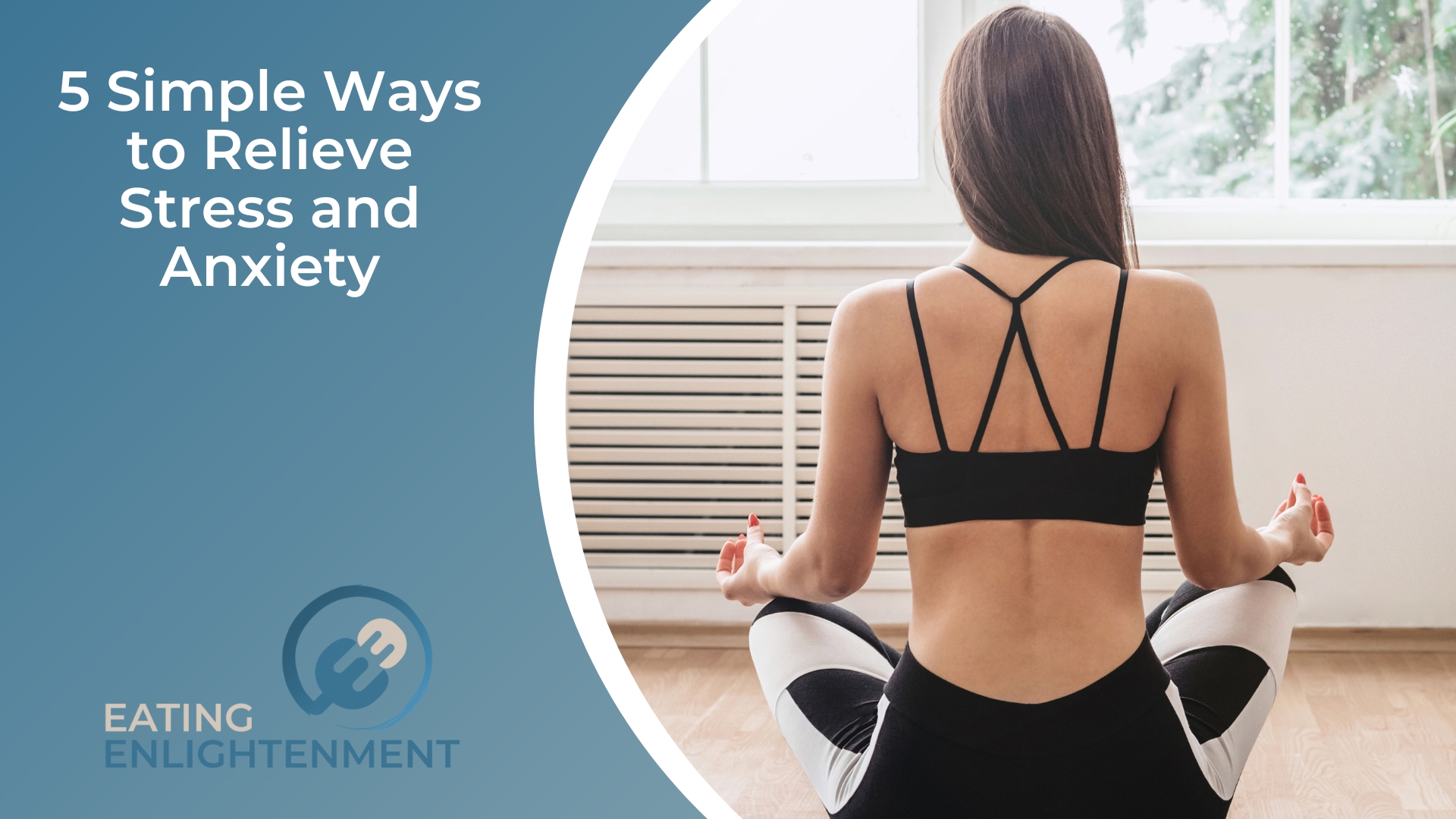In our fast-paced world, stress and anxiety have become common companions for many of us. The quest for relief can sometimes feel as challenging as the stressors themselves. However, there are simple, effective ways to manage these feelings and reclaim a sense of peace.
Here are five methods, ranging from traditional practices to more unconventional approaches, including the use of magic mushrooms, that have shown promise in relieving stress and anxiety.

1. Mindfulness and Meditation
Mindfulness and meditation have long been celebrated for their stress-reducing benefits. By focusing on the present moment and observing thoughts and feelings without judgment, individuals can cultivate a state of calmness and clarity. Meditation practices, such as guided imagery, deep breathing exercises, or even silent reflection, can significantly lower stress levels, enhance emotional health, and improve overall well-being. Setting aside just 10-15 minutes a day for meditation can make a noticeable difference in reducing anxiety and stress.
2. Physical Activity
Engaging in regular physical activity is another powerful way to combat stress and anxiety. Exercise releases endorphins, chemicals in the brain that act as natural painkillers and mood elevators. Whether it’s a brisk walk in the park, a yoga session, or a high-intensity workout, physical activity can improve mood, increase energy levels, and help manage symptoms of anxiety and depression. The key is to find a form of exercise you enjoy, making it easier to incorporate into your daily routine.
3. Deep Connection with Nature
Spending time in nature has a profound calming effect on the mind and body. Natural settings can lower blood pressure, reduce cortisol levels (a stress hormone), and enhance feelings of happiness and well-being. Whether it’s a hike in the forest, gardening, or simply sitting in a park, connecting with the earth and its rhythms can provide a powerful antidote to the chaos of modern life. This practice, often referred to as “forest bathing,” emphasizes the importance of being in and absorbing the serene beauty of the natural world.
4. Magic Mushrooms
In recent years, there’s been growing interest in the therapeutic use of psilocybin, the active compound in magic mushrooms, for treating various mental health conditions, including stress and anxiety. Research suggests that psilocybin can facilitate deeply meaningful experiences leading to significant and lasting reductions in anxiety and depression for some individuals. These substances should be approached with caution, however, as they can induce powerful alterations in perception, mood, and thought. It’s important to note that the use of magic mushrooms is subject to legal restrictions in many countries, and their use should only be considered under the guidance of a professional in a safe, controlled environment.
5. Creative Expression
Creative activities such as painting, writing, dancing, or playing music can be incredibly therapeutic for relieving stress and anxiety. Engaging in creative expression allows for the channeling of emotions and thoughts into something tangible, offering a form of release and distraction from anxiety-inducing thoughts. The process of creating can also boost self-esteem and provide a sense of accomplishment, further alleviating feelings of stress.
Conclusion
Managing stress and anxiety is a deeply personal journey, and what works for one person may not work for another. It’s important to explore different methods and find what best suits your needs and lifestyle. Whether through meditation, physical activity, connecting with nature, exploring the potential of magic mushrooms (with caution and under professional guidance), or engaging in creative expression, relief from stress and anxiety is within reach.
Remember, seeking the advice of a healthcare professional is crucial when exploring new methods of stress relief, especially when considering options like magic mushrooms. With the right approach, it’s possible to find balance and peace in the midst of life’s challenges.
How does sleep affect stress levels?
Sleep plays a crucial role in managing and regulating stress levels. Adequate, high-quality sleep helps to maintain the body’s natural stress response system, including the regulation of stress hormones like cortisol. When you don’t get enough sleep, your body’s ability to regulate these hormones is impaired, leading to elevated stress levels. Furthermore, poor or insufficient sleep can activate areas of the brain that contribute to excessive worrying and emotional distress, making it harder to cope with stress during the day.
Conversely, high stress levels can also negatively impact sleep quality and duration, creating a cycle where stress leads to poor sleep, which in turn, increases stress. This cycle can affect physical health, mental well-being, and cognitive functions, such as concentration and memory. Engaging in good sleep hygiene practices, such as maintaining a consistent sleep schedule, creating a comfortable sleep environment, and limiting exposure to screens before bedtime, can help improve sleep quality and, as a result, better manage stress levels.



